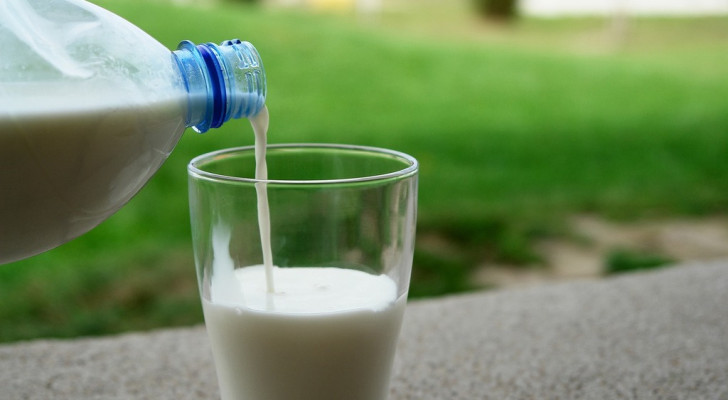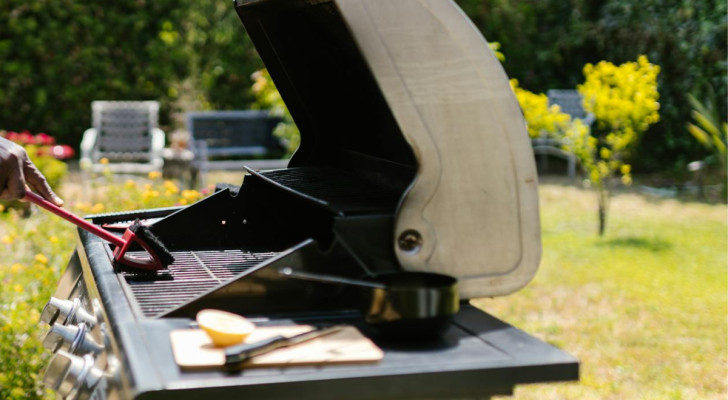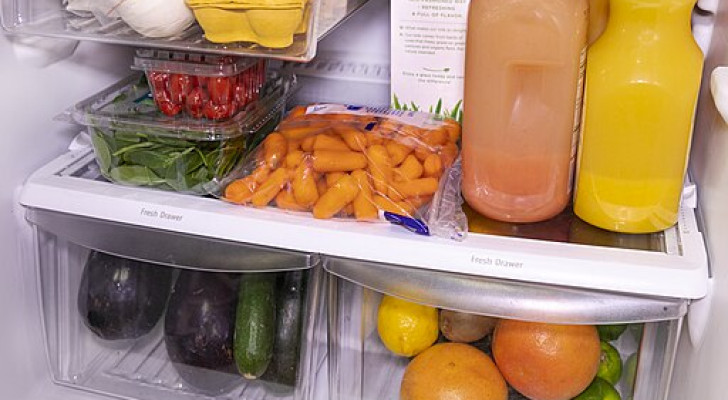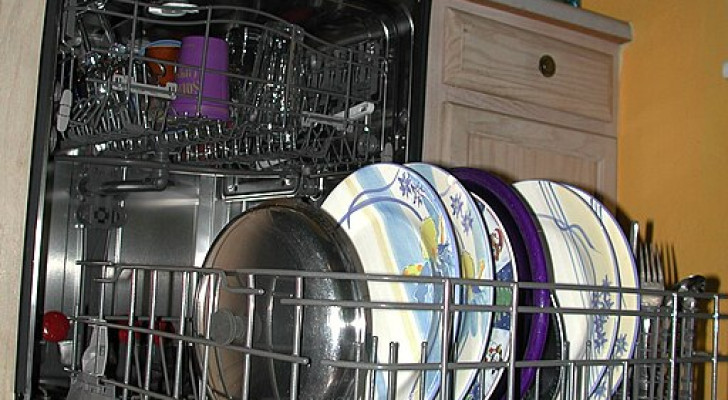Cultivating lemon trees in pots? You can do this successfully by following our handy guide
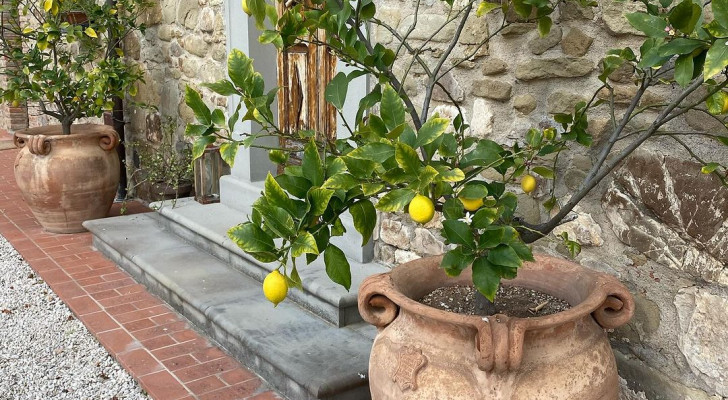
boneydecorsolutions/Instagram
An essential and incredibly versatile ingredient in our kitchens, lemons are usually always available on fruit stands and supermarket shelves. But being able to pluck your own fresh lemons is undoubtedly much more satisfying.
Did you know that growing a lemon tree in a pot is relatively easy? Some varieties are more suitable than others for this and you can certainly look forward to gathering in your own robust, healthy "lemon harvest" if you follow the guide we provide below:
Lemon varieties best suited for cultivation in pots
There are many varieties of extant lemon and many are suitable to being cultivated in pots. The most popular species of lemon trees grown in pots are the following:
- Lunario: suitable for home cultivation and known for continuously producing flowers which, in turn, guarantee an abundant harvest throughout the year;
- Meyer: originally from China, this is a natural hybrid between lemons and sweet oranges and is particularly suitable for regions with a harsh climates (this plant can tolerate temperatures of up to -10 degrees C);
- Eureka: adaptable to almost any soil type, this lemon variety is one of the most widespread, despite being sensitive to the cold;
- Pane: a lemon originally from the Amalfi coast (Italy), this is another highly appreciated re-flowering species and the peels of the fruit can also be eaten;
- Zagara bianca: coming from Sicily, this lemon species is characterized how juicy its fruit is.
Choice of pot and positioning
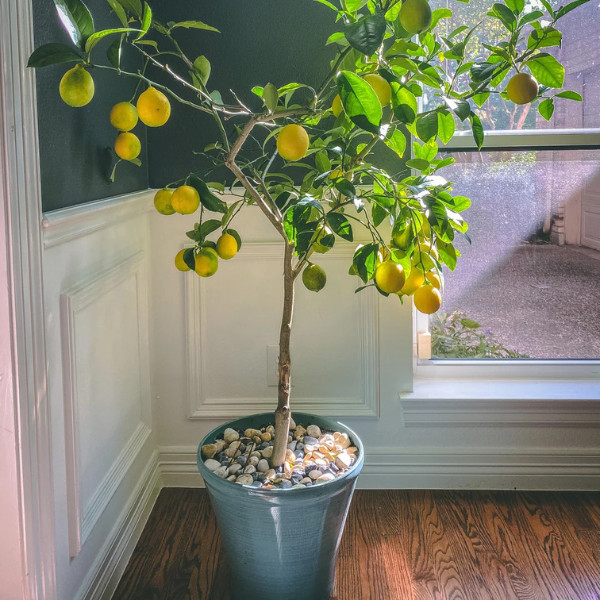
pocketmole/Reddit
The choice of pot is essential for the success of growing your lemon trees:
- Material: the most popular pots for growing lemons in are terracotta pots, since unlike other materials, terracotta will absorb excess water in the soil, preventing water-logging;
- Size: the size of your pots is also important as this will determine the humidity levels of the soil. Choose pots that are not too large and, when repotting, use pots that are no more than 15% larger than the current pot; an excess of soil around the roots could cause moisture in the soil to stagnate and root rot to develop.
Once chosen, place your pots in a sunny area outside. If you grow your lemon trees indoors, place them next to a window or on a windowsill.
Soil and watering
The potting soil you use must be granular, well-draining and with a pH around 6-6.5 for the optimal absorption rate of nutrients from the soil. For younger trees, repotting them every 2 years will be necessary to replace depleted soil; for adult trees, repotting them every 4 years will be sufficient.
Also, pay attention to how you water your lemon trees: watering should be done only when the upper layer of the soil is dry in order to avoid the risk of root rot. Watering frequency will depend on the local climatic conditions, of course, but will need to be less frequent during the winter.
Ambient humidity levels, however, must always be maintained at around 50-60%.
Fertilizing
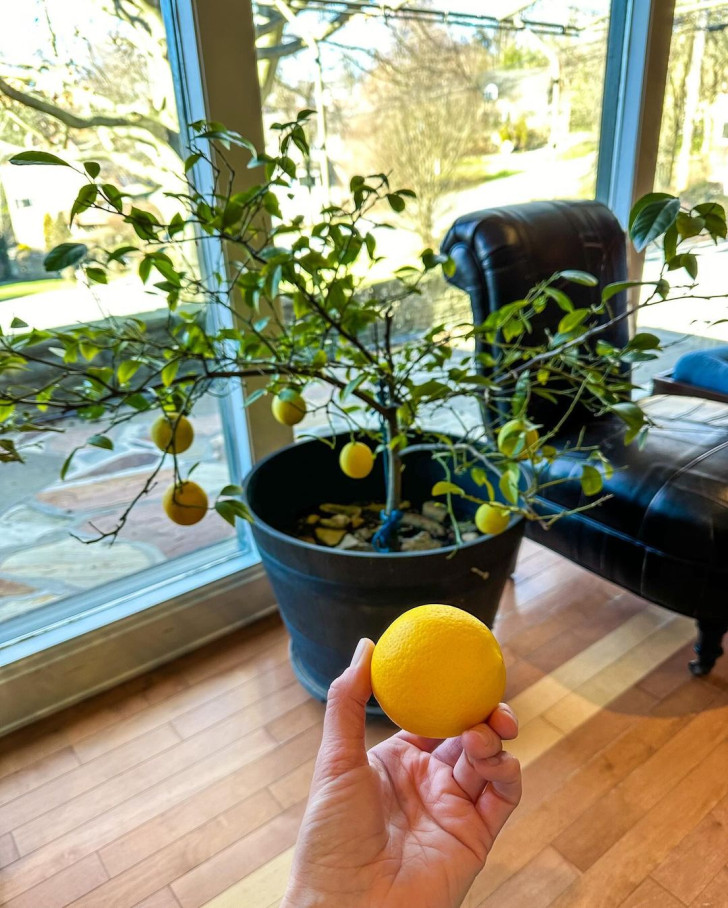
@suzonkb/Instagram
For a bountiful lemon harvest, it is important to provide your lemon trees with all the necessary nutrients. In particular, this means providing them with nitrogen, which lemon trees consume in large quantities.
Choose a fertilizer with a NPK ratio of 2-1-1 and use it at the end of winter to stimulate flowering. Use this fertilizer in spring to support fruiting and in the fall, just before your lemon trees go dormant.
Pruning
The need for pruning is minimal for lemon trees and mainly serves to maintain their shape. Prune in late winter or early spring, removing dry or crossed branches and thinning the foliage a little to allow for the better penetration of sunlight.
If a tree produces a lot of lemons, remove the smaller ones before they reach maturity. This will improve the quality of the lemons in your later harvest.
By following these tips, your lemon trees will be bountiful and robust!
